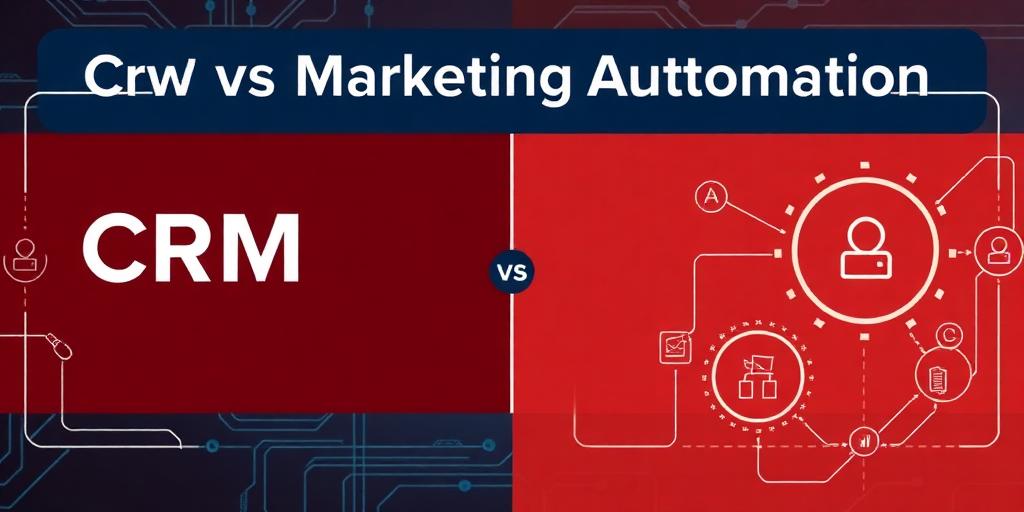In today's digital landscape, businesses leverage various tools to streamline operations and enhance customer engagement. Among these, Customer Relationship Management (CRM) and Marketing Automation platforms stand out as crucial components. While both aim to improve business outcomes, they serve distinct purposes and offer unique functionalities. This article provides an in-depth comparison of CRM and marketing automation, highlighting their key differences and how they contribute to a comprehensive business strategy.
What is CRM?
Customer Relationship Management (CRM) is a system designed to manage and analyze customer interactions and data throughout the customer lifecycle. The primary goal of a CRM is to improve business relationships, assist in customer retention, and drive sales growth. By providing a centralized repository of customer information, CRM systems enable businesses to gain insights into customer behavior, preferences, and needs.
Key Features of CRM:
- Contact Management: Stores detailed information about customers and prospects, including contact details, communication history, and demographics.
- Sales Force Automation: Automates sales processes, such as lead tracking, opportunity management, and sales forecasting.
- Customer Service: Provides tools for managing customer inquiries, support tickets, and service requests.
- Analytics and Reporting: Offers insights into sales performance, customer behavior, and overall business performance.
What is Marketing Automation?
Marketing automation is a technology that automates marketing tasks and workflows to nurture leads, personalize customer experiences, and measure campaign effectiveness. It focuses on streamlining repetitive tasks, such as email marketing, social media posting, and lead scoring, allowing marketers to focus on strategic initiatives.
Key Features of Marketing Automation:
- Email Marketing: Automates email campaigns, including segmentation, personalization, and scheduling.
- Lead Management: Captures, scores, and nurtures leads through targeted content and automated workflows.
- Campaign Management: Manages and tracks marketing campaigns across multiple channels.
- Social Media Marketing: Automates social media posting, monitoring, and engagement.
- Analytics and Reporting: Provides insights into campaign performance, lead engagement, and ROI.
Key Differences Between CRM and Marketing Automation
While both CRM and marketing automation are essential tools for modern businesses, they differ significantly in their focus and functionality:
- Focus: CRM focuses on managing customer relationships and improving sales processes, while marketing automation focuses on automating marketing tasks and nurturing leads.
- Functionality: CRM provides tools for contact management, sales force automation, and customer service, whereas marketing automation offers features for email marketing, lead management, and campaign management.
- Objective: CRM aims to enhance customer satisfaction, retention, and sales growth. Marketing automation aims to generate leads, improve conversion rates, and increase marketing ROI.
- Integration: CRM and marketing automation can be integrated to create a seamless flow of information between sales and marketing teams, enabling a more coordinated and effective approach to customer engagement.
How to Choose the Right Solution
Selecting the right solution depends on your business needs and objectives. If your primary goal is to improve customer relationships and streamline sales processes, a CRM system is the right choice. If you want to automate marketing tasks, generate leads, and improve campaign performance, marketing automation is the better option. In many cases, integrating both CRM and marketing automation can provide the most comprehensive solution.
Conclusion
CRM and marketing automation are powerful tools that can significantly enhance business performance. By understanding their key differences and how they complement each other, businesses can make informed decisions about which solutions to implement. Whether used independently or integrated, CRM and marketing automation are essential for building strong customer relationships, driving sales growth, and achieving marketing success.









